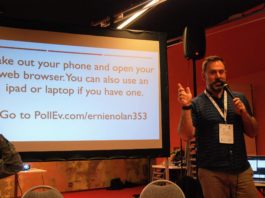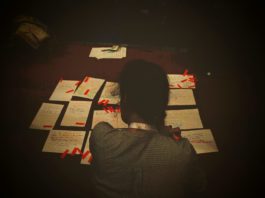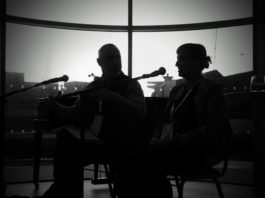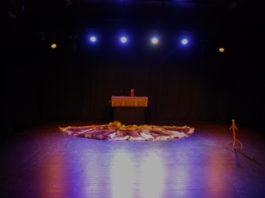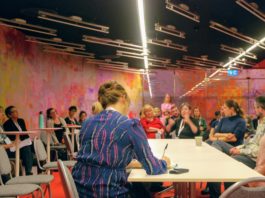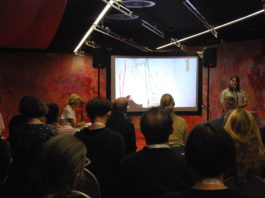Gunhild Bjørnsgård led a timely and relevant debate on whether we really have a free voice while creating Art. The discussion explored why Art is important to oneself and to society and why it is generally lacking in economic value. Bjørnsgård argued that Artists are becoming more and more restricted and are being guided into commercialising their work in ways they may not be comfortable with, simply because of the political climate.
Those Artists going against the grain of commercialisation are seen to be recipients of very little respect and very little money. Indeed, whilst at the moment we may be educating a lot of Artists but there is often no work, respect, or money to be gained after they have graduated meaning that they and their Art are forced to conform to societal demands. This, it is argued, makes it impossible to have a free voice. Rather than creating Art for the sake of creating Art, the state engages Artists into becoming workers, rather than allowing them to create Art freely.
We discuss the importance of freedom in the session. Perhaps if greater Artistic freedom is given, the resulting Art pieces may be more ‘authentic’? Whilst it is great that there is a strong demand for Art in Norwegian schools, for example, this leads to curators simply curating ‘towards’ and ‘for’ schools – meaning that the Art is created in an increasingly closed and structured environment. Some at the debate criticise this Norwegian system, saying that it stratifies Artists – creating a detrimental hierarchy in the Arts between those that produce performances for adults and those that produce the same for young people. Should the creation of Theatre be ‘freed’ from such limiting demands, they ask?
The crux of the argument here is that everyone interested in Art should take care of democracy so that we can maintain an openness in our artistry. Accepting pluralism and difference is key in order to create more work collaboratively, and yet, in a free environment.


